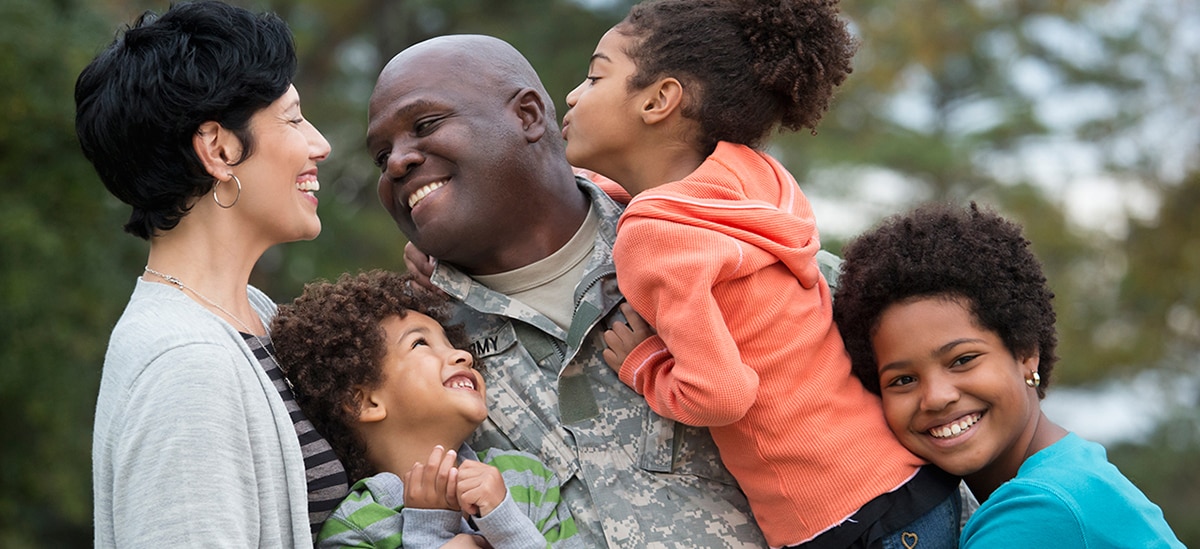
Keeping your finances secure while online and in real life can be a real challenge for military families when on the move. Here are 10 simple tips to help you keep your transactions (and financial future) secure.
1. Use public Wi-Fi with caution.
Free Wi-Fi is extremely useful in military families, except for when it comes to financial actions like making purchases or logging into online banking accounts. Public Wi-Fi signals pose a major security risk due to hacking.
Always make sure that the Wi-Fi signal you use is an official network and not just a free signal you’ve found. If you want to buy something or access sensitive information, wait until you can access a secure connection, or connect directly to a private personal hotspot. You can consider purchasing access to a Virtual Private Network, or VPN[1], for added security.
2. Monitor your transactions carefully through online banking.
Online banking is a powerful tool for staying up-to-date on your finances. It’s crucial to regularly monitor your accounts by reviewing your transaction history. This is especially true if you’re moving to a new duty assignment or traveling for work. Be sure to notify your financial institutions before you deploy. If you notice suspicious activity, contact us immediately.
3. Regularly update passwords and use secure encrypted password vaults.
Establishing a habit of regularly updating your passwords for online accounts can help keep both your identity and finances safe. One way to ensure your passwords are secure is to use random password generators to help you stay away from easy-to-hack passwords. Often, these generators are free to use. Another useful tool to consider using is a secure password vault to encrypt and store your passwords.
Pro tips:
- Make sure your spouse or a trusted family member has access to your password vault in the event you need help monitoring your accounts or in the event of an emergency.
- Never use the same password and user ID for your banking as you do for any other site. Re-using passwords puts your credentials at risk.
4. Keep an eye on your credit reports.
Another free and incredibly powerful tool is a credit report. There are three free credit reports available each year through www.annualcreditreport.com [2], and a number of other websites that monitor your credit score. Review these for errors and report any incorrect information you find directly to the credit bureau and financial institutions.
Remember, blemishes on a credit report can impact security clearances, so military service members should keep an eye out for fraud and errors.
5. Think ahead before co-signing.
Co-signing a loan or rental agreement can be a risky endeavor, especially for a military family. Being a co-signer means that if the party you’re co-signing for cannot fulfill the terms of the agreement, you are responsible for ensuring the terms are met. Additionally, any default on a loan will also impact your credit history which can have influence a service member’s security clearance.
If you decide to cosign in support of a trusted family member or friend, talk to your spouse and make sure you certain are ready and able to assume any payments or associated financial burdens before you sign.
6. Consider an emergency savings account.
An emergency savings account is the best line of defense to protecting yourself and your finances against an unexpected expense. And let’s be honest, a military move is anything but predictable. Your emergency savings account is a tool to ensure you have access to the funds you need to for major things, like a security deposit on a new home. Once your moving allowances are reimbursed, you can rebuild your emergency savings for your next rainy day.
Emergency savings can keep you from seeking out expensive high-interest loans from predatory lenders like pawn shops, payday lenders, or rent-to-own.
And, if you don’t have access to an emergency savings account during an emergency, don’t worry. Contact your military branch’s aid society for assistance. They can offer no-interest loans or grants to qualifying service members and military spouses.
7. Invest in a shredder.
One of the single greatest threats to protecting your identity is people rummaging through your garbage? An address and a name might be all a person needs to steal your identity. Shredding sensitive documents and envelopes with your address is an easy way to combat a potential identity thief. You can purchase a small shredder online or find them at most office supply stores.
8. Keep important documents in a safe deposit box.
Setting up a safe deposit box is a great first step when you get a new duty assignment; it’s crucial to make it a priority for your next PCS. Social security cards, birth certificates, marriage licenses, official passports, and other sensitive documents are best kept locked away in a safe place. A safe deposit box protects your important documents, not only from an identity thief but also from possible natural disasters like a fire or tornado.
Remember to designate a co-owner of the box or a trusted person back home who will have the authorization to gain access in case of emergency.
9. Keep checks on hand in case of an emergency.
Finally, if you’ve ever lost your debit card and had to reorder a new one, having a stash of checks on hand can be incredibly helpful. Always keep a checkbook handy in the event of an emergency while traveling. It’s best to be prepared—you never know when you might need one!
By incorporating these ten simple personal finance tips into your everyday routine, you’ll become an even more financially prepared military family.




